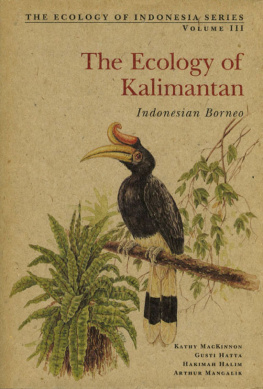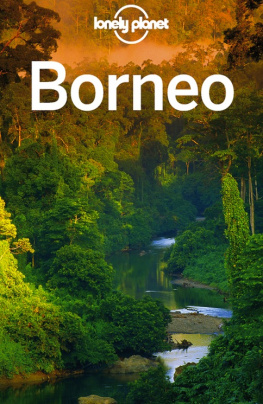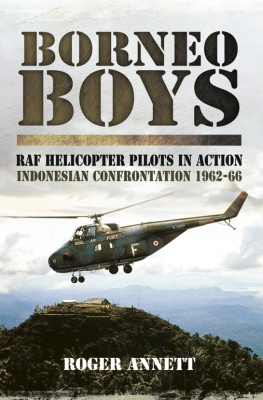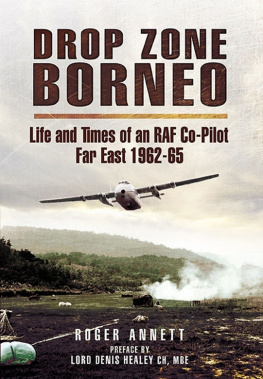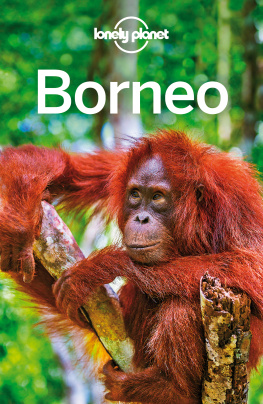Back Cover
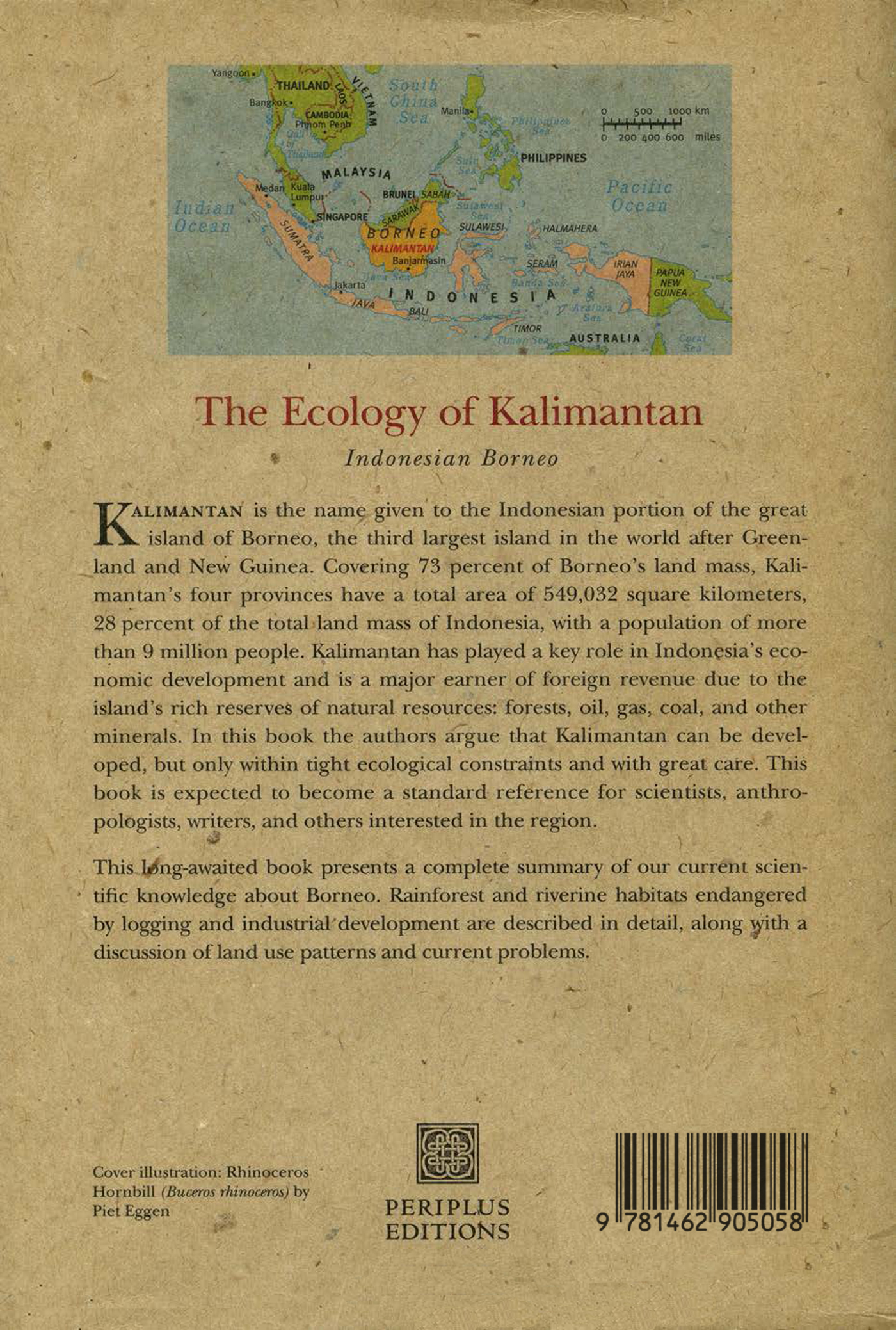
Cover

Half Title


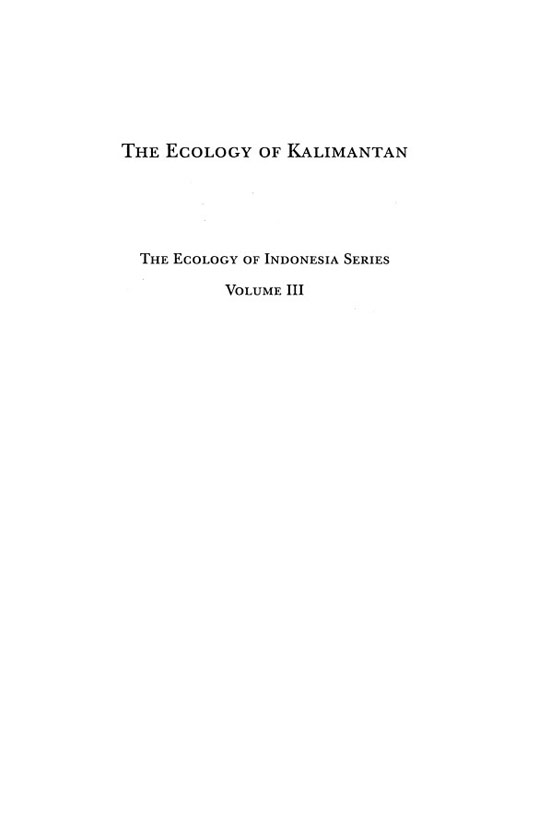
THE ECOLOGY OF INDONESIA SERIES
Volume III: The Ecology of Kalimantan
Other titles in the Series
Volume I: The Ecology of Sumatra
Volume II: The Ecology of Java and Bali
Volume IV: The Ecology of Sulawesi
Volume V: The Ecology of Maluku and Nusa Tenggara
Volume VI: The Ecology of Irian Jaya
Volume VII: The Ecology of the Indonesian Seas
Produced by
Environmental Management Development in
Indonesia Project, a cooperative project of the
Indonesian Ministry of the Environment
and
Dalhousie University, Halifax, Nova Scotia
under the sponsorship of the
Canadian International Development Agency
Title
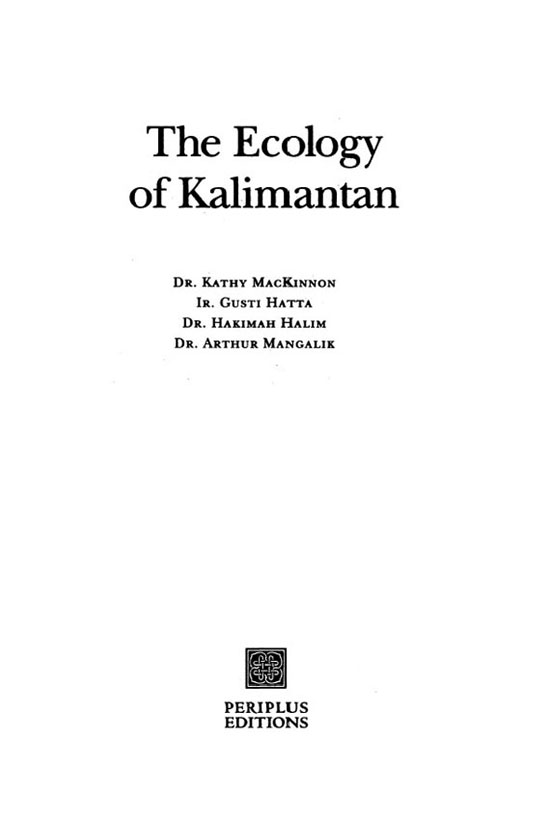
Copyright
Copyright 1996 Dalhousie University
All maps in this edition copyright 1996 Periplus Editions (HK) Ltd
All rights reserved
Published by Periplus Editions (HK) Ltd.
ISBN: 978-1 4629-0505-8 (ebook)
Publisher: Eric Oey
Design: Pete Ivey
Prepress production: JWD Communications Ltd.
Copy editing: Sean Johannesen and Kathy McVittie
Distributors:
Indonesia:
C.V. Java Books, P.O. Box 55 JKCP
Jakarta 10510
Singapore and Malaysia:
Berkeley Books Pte. Ltd.
61 Tai Seng Avenue, #02-12
Singapore 534167
Tel: (65) 6280 1330
Fax: (65) 6280 6290
Email:
Web site: www.periplus.com
The Netherlands:
Nilsson & Lamm B.V.
Postbus 195, 1380 AD Weesp,
Printed in the Republic of Singapore
EMDI
EMDI
The Environmental Management Development Project (EMDI) was designed to upgrade environmental management capabilities through institutional strengthening and human resource development. A joint project of the Ministry of State for Environment (LH), Jakarta, and the School for Resource and Environmental Studies, Dalhousie University, Halifax, Nova Scotia, EMDI supported LH's mandate to provide guidance and leadership to Indonesian agencies and organizations responsible for implementing environmental management and sustainable development. Linkages between Indonesian and Canadian organizations and individuals in the area of environmental management are also fostered.
EMDI received generous funding from the Canadian International Development Agency (CIDA). CIDA provided Cdn$2.5 million to EMDI-1 (1983-86), Cdn$7.7 million to EMDI-2 (1986-89), and contributed Cdn$37.3 million to EMDI-3 (1989-95). Significant contributions, direct and in kind, were made by LH and Dalhousie University.
EMDI-3 emphasized spatial planning and regional environmental management, environmental impact assessment, environmental standards, hazardous and toxic substance management, marine and coastal environmental management, environmental information systems, and environmental law. The opportunity for further studies was offered through fellowships and internships for qualified individuals. The books in the Ecology of Indonesia series form a major part of the publications programme. Linkages with NGOs and the private sector were encouraged.
EMDI supported the University Consortium on the Environment comprising Gadjah Mada University, University of Indonesia, Bandung Institute of Technology, the University of Waterloo, and York University. Included in EMDI activities at Dalhousie University were research fellowships and exchanges for senior professionals in Indonesia and Canada, and assistance for Dalhousie graduate students undertaking thesis research in Indonesia.
For further information about the EMDI project, please contact:
Director
School for Resource and Environmental Studies
Dalhousie University
1312 Robie Street
Halifax, Nova Scotia
Canada B3H 3E2
Tel. 1-902-494-3632
Fax. 1-902-494-3728
Foreword
Foreword
Indonesia covers only 1.3% of the earth's surface, yet it harbours some of the world's richest biodiversity: 10% of all flowering plants, 12% of the world's mammal species, 16% of all reptiles and amphibian species, 17% of the world's birds and a quarter of all marine and freshwater fishes. This incredible biological richness is not only an important part of our natural heritage, it provides the life support systems, natural harvests and environmental services on which the nation's health, livelihood and well-being depend. An estimated 40 million people (almost one-quarter) of Indonesia's population are dependent on biodiversity for subsistence through harvesting of coastal, freshwater and marine fisheries, collection of non-timber forest products or cultivation of indigenous fruits, vegetables, cereals and spices. Conservation of the country's natural ecosystems and the biodiversity and environmental services they provide is crucial to the sustainability of economic development in sectors as diverse as forestry, agriculture and fisheries; health care; science; industry and tourism.
Protection and wise utilisation of biological resources requires that we understand how ecosystems work and the interactions and interdependence between natural habitats and a healthy environment. The Ecology of Indonesia series, part of the CIDA-funded Environmental Management Development in Indonesia Project attempts to explain the principles of ecology in. the Indonesian context. This third volume in the series focuses on Kalimantan, part of Borneo, the world's fourth-largest island. Studies in Kalimantan provide valuable insights into ecological processes and the complex interactions between plants and animals in natural ecosystems. The book also considers human dependence on this island's biological resources and how human actions are changing and threatening the natural habitats on which so many Kalimantan peoples depend. As Kalimantan's vast tropical rainforests and coastal wetlands come under increasing pressure, this book reminds us that sustainable development depends on the maintenance of ecological processes and environmental functions.
The Ecology of Kalimantan was prepared as a collaborative effort between western and Indonesian scientists based at the environmental study centres in Kalimantan. The project provided training opportunities and resources for Kalimantan scientists and students to undertake ecological research in wetland and forest habitats and also established important literature collections and databases at KPSL-UNLAM, Banjarbaru, and PSL-UNTAN, Pontianak. I congratulate the authors and contributors on publication of this book and welcome this useful contribution to environmental literature of Indonesia.
Jakarta, September 1994
Sarwono Kusumaatmadja
State Minister of Environment
Republic of Indonesia
Acknowledgements
Acknowledgements
The Ecology of Kalimantan

